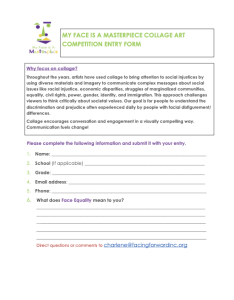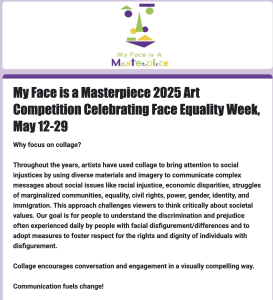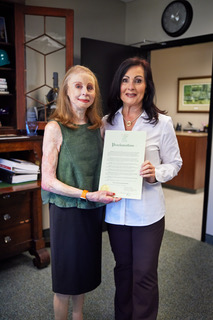My Face is a Masterpiece Collage Art Competition, celebrating Face Equality Week May 12 – 19, 2025
Submissions open Feb. 17 through April 11, 2025
Separate Judging for Student and Public Art
CRITERIA:
- Topic: My Face is a Masterpiece for Face Equality Week (May 12-19)
- Medium: Collage
- Size 8 x 10″ or larger
- Written Information: Artist name, School, Grade, and what face equality means to you
- Due Date: April 11, 2025
- Submit your collage to Diane Creech at Greensboro Sports Performance, 4113 Lawndale Dr., Greensboro, NC 27455
- Celebration Event: Friday May 16, 2025, 4pm – 8pm
- Cash prizes for First, Second, and Third Place for bot Student and Public categories
- The winning entries will be displayed at Brewed & Bottled until June 1, 2025
- Winners receive gift cars to Brewed & Bottled and additional prizes
2025 MY FACE Entry Form (.pdf)
~~~~~~~~~~~~~~~~~~~~~~~~~~~~~~~~~~~~~~
Enter online with Google form Here:
We invite you to explore and express the theme of farce equality through your collage. In 2024, former N.C. Governor Roy Cooper issued a Proclamation recognizing the need to end stigma, prejudice, and discrimination against individuals with facial disfigurements or differences. Your artwork should communicate this powerful message visually, without the need for written explanation.









